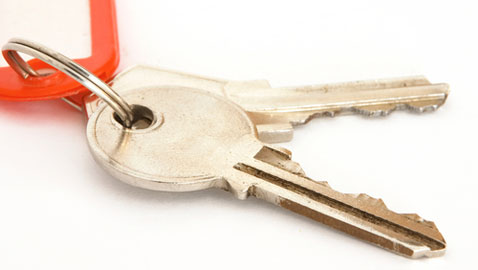There was a 28% increase in the number of first-time buyer transactions in May to 16,170, according to LSL Property Services.
This follows the dramatic fall in the previous month following the end of the stamp duty ‘holiday’.
The average price of a first-time buyer property has also increased; it is up by 4.3% to £127,493, while the average LTV fell from 81.1% to 79.7%.
The research found that deposits in May were 71.6% of the average first-time buyer’s annual income, down slightly from 71.8% in the previous month, while mortgage repayments account for 19.6%, down from 21.6% in April.
On an annual basis the affordability of the average house purchase deposit has improved, while the affordability of mortgage payments improved from 22% of the average first-time buyer’s income in May 2011. The average mortgage repayment rate for first-time buyers fell in May from 5% to 4.9% and the average deposit rose to £25,839.
“May’s rise in first-time buyer transactions shows the strength of underlying demand among those able to put up a large enough deposit,” said David Newnes, director of LSL Property Services.
“As the stamp duty effects began to wither, May saw first time buyer activity climb back after April’s drop-off as buyers with strong finances who were able to provide large deposits and borrow at lower LTVs entered the market.
“The market is now being driven by buyers with enough money to absorb the additional tax burden. While the number of tenants able to leave the private rental sector remains historically low, those that can are taking the opportunity to enjoy the currently highly affordable mortgage rates on offer. With economic fears growing both inside and outside the UK, it’s highly unlikely we’re going to see a base rate rise in the foreseeable future, meaning tracker rate deals are currently offering very low-cost access to finance. When making loans to buyers with large deposits, lenders have shown they are happy to let borrowers take advantage.”
Almost all (99.6%) registered tenants said they wanted to become a homebuyer, but only 25% stated they expected to buy within one year, Meanwhile 50% intended to buy within five years.
The most common reason would-be first time buyers are holding off from making a house purchase is their inability to put together an adequate cash deposit. High transaction costs were cited by 15% of buyers, indicated the return of stamp duty for purchasers below £250,000 continues to weigh on the minds of buyers. Only 4.7% stated the prospect of falling house prices concerned them, indicating first time buyers still feel property is a sensible long-term investment.
That only a very small proportion of those renting suggested they aren’t purchasing due to worries about the future direction of house prices indicates there’s still plenty of positive sentiment about the property market,” said Newnes.
“Buyers clearly still feel buying a house is a good investment, which makes it all the more frustrating that the need to save a large chunk of cash and growing transaction costs are the main reasons they can’t take the plunge.”
















